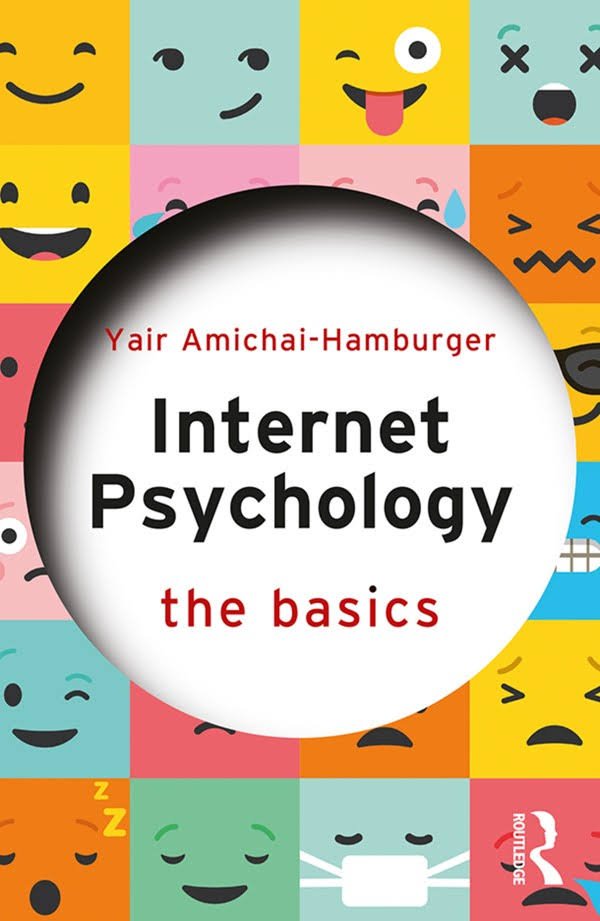1) Internet Psychology: The Basics – Yair Amichai-Hamburger
Routledge | 2017 | PDF
We can’t imagine our lives without the Internet. It is the tool of our existence; without it we couldn’t work, plan our social and leisure activities, and interact with friends. The Internet’s influence on contemporary society extends across every aspect of our personal and professional lives, but how has this altered us in psychological terms? How are we to understand how the Internet can promote enormous amounts of caring and kindness to strangers and yet be the source of unremitting acts of terror?
This book, grounded in the latest cutting-edge research, enhances our understanding of how we, and our children, behave online. It explores questions such as:
• Why does our self-control abandon us sometimes on the Internet?
• Why does the Internet create a separate realm of social and personal relationships?
• How does all that change us as people?
• Are youngsters really as exposed and threatened on the web as people think?
Internet Psychology: The Basics is a vital and fascinating guide to the online world, drawing on classic theories of human behaviour to shed fresh light on this central facet of modern life. It argues that, even in an age of constant technological advancement, our understanding of the human psyche remains rooted in these well-established theories. Embracing both positive and negative aspects of Internet use, this easy introduction to the subject will appeal to students and general readers alike.
2) The Social Net: Understanding our Online Behavior (2nd Edition) – Yair Amichai-Hamburger
Oxford University Press | 2013 | PDF
In the past two decades, the Internet has come to dominate every aspect of everyday life. This has been a huge change for many of us, and, for the younger generation – born into this situation – there has been no other way of living. How does this new way of life affect our health and happiness, our well-being? How does it affect our relationships, our friendships? Has the definition of friendship changed now that we have hundreds of friends on Facebook? Why is it that some people find it so hard to talk to people in their daily lives but find it so easy on the Internet? People spend so much time on the Internet – so what do we actually do on there? Why are some people so aggressive and others exceptionally helpful? Are these behaviors that we see from the same people offline? How do we take decisions online and which groups would we rather belong to online where nobody knows us, rather than revealing our true identity to the outside world?
The new edition of ‘The Social Net’ provides a comprehensive understanding of the social aspects of the Internet. It contains chapters on topics such as identity manipulation, online romantic relationships, online decision making, the internet and aggression, and online prejudice and discrimination. The book provides the reader with an understanding of both the negative and positive influences of the net and is an exceptionally useful guide for for how to use the net to improve wellbeing. Today, when there is so much negative publicity surrounding the Internet – despite our reliance on it, this book provides a much needed balanced understanding of the Net and its influence.
 1 / 2
1 / 2 2 / 2
2 / 2